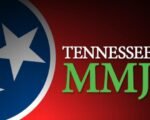In August 2024, significant legislative and regulatory changes regarding tobacco products were observed across various states in the United States. These changes reflect ongoing efforts to address public health concerns associated with tobacco use, particularly among minors. This roundup highlights key legislative actions and regulatory updates from Massachusetts, Minnesota, and Nebraska, providing insights into the evolving landscape of tobacco control.
In Massachusetts, proposed legislation aimed at increasing the state cigarette tax from $3.51 to $4.51 per pack and doubling the tax on cigars and smoking tobacco from 40% to 80% of the wholesale price failed to pass. The state legislature ended its formal session on August 1 without advancing the bill. This setback means that the anticipated revenue from the increased taxes, which was intended to fund public health initiatives, will not materialize.

The failure to pass the tax increase has sparked debate among public health advocates and lawmakers. Proponents argue that higher taxes on tobacco products are an effective deterrent against smoking, particularly among young people. They emphasize that increased prices can reduce tobacco consumption and generate funds for health programs. Opponents, however, contend that such tax hikes disproportionately affect low-income individuals and may lead to increased smuggling and black-market sales.
Despite this legislative setback, public health advocates in Massachusetts remain committed to pursuing measures that can reduce tobacco use and its associated health risks. They are exploring alternative strategies to achieve their goals, including public education campaigns and stricter enforcement of existing tobacco regulations.
Minnesota: Crackdown on Flavored Tobacco
In Minnesota, State Attorney General Keith Ellison took a firm stance against unauthorized and illegal flavored tobacco products. On August 29, Ellison sent a letter to over 5,000 tobacco distributors and retailers, urging them to stop distributing, marketing, and selling flavored e-cigarettes and nicotine pouches that have not been authorized by the U.S. Food and Drug Administration (FDA). These products, often appealing to minors due to their candy, fruit, or dessert flavors, pose significant public health risks.
Ellison’s letter highlighted the prevalence of unauthorized flavored tobacco products in the market and the need for compliance with state and federal regulations. He called on retailers to confirm their adherence to Minnesota law and ensure that only FDA-authorized products are sold. This move is part of a broader effort to protect minors from the harmful effects of nicotine addiction and to curb the use of flavored tobacco products.
The crackdown on flavored tobacco products has received support from public health organizations and parents concerned about the rising use of e-cigarettes among teenagers. By targeting the distribution and sale of these products, Minnesota aims to reduce the appeal of tobacco to young people and prevent the initiation of nicotine use.
Nebraska: Legislative Wins
Nebraska saw positive legislative developments in August 2024, with Governor Jim Pillen signing a package of legislation that included property tax reductions across the state. Notably, the adopted version of the legislation did not contain any tax increases on cigarettes, vapor products, or alternative nicotine products. This decision was welcomed by tobacco retailers and consumers who were concerned about potential tax hikes.
The absence of new taxes on tobacco products in Nebraska reflects a different approach to tobacco control compared to states like Massachusetts. While some states pursue higher taxes as a deterrent, Nebraska’s focus has been on maintaining current tax levels while exploring other avenues for public health improvement. This includes initiatives aimed at education, prevention, and cessation support for tobacco users.
The legislative wins in Nebraska highlight the diverse strategies employed by states to address tobacco use and its associated health risks. By balancing fiscal policies with public health goals, Nebraska aims to create a supportive environment for both consumers and retailers while promoting healthier lifestyles.
Maria Garcia is an award-winning author who excels in creating engaging cannabis-centric articles that captivate audiences. Her versatile writing style allows her to cover a wide range of topics within the cannabis space, from advocacy and social justice to product reviews and lifestyle features. Maria’s dedication to promoting education and awareness about cannabis shines through in her thoughtfully curated content that resonates with both seasoned enthusiasts and newcomers alike.








